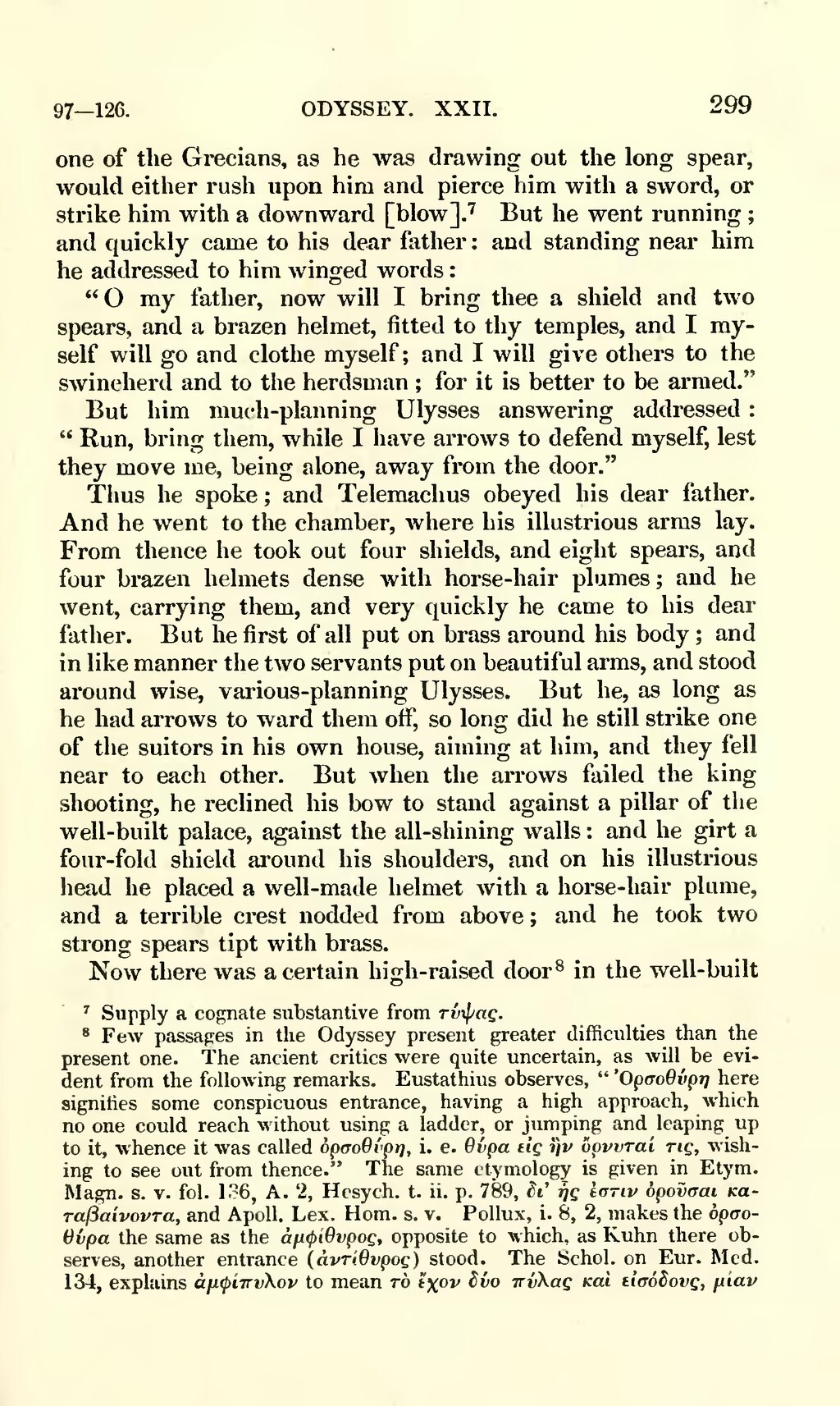one of the Grecians, as he was drawing out the long spear, would either rush upon him and pierce him with a sword, or strike him with a downward [blow].[1] But he went running; and quickly came to his dear father: and standing near him he addressed to him winged words:
"O my father, now will I bring thee a shield and two spears, and a brazen helmet, fitted to thy temples, and I myself will go and clothe myself; and I will give others to the swineherd and to the herdsman; for it is better to be armed."
But him much-planning Ulysses answering addressed: "Run, bring them, while I have arrows to defend myself, lest they move me, being alone, away from the door."
Thus he spoke; and Telemachus obeyed his dear father. And he went to the chamber, where his illustrious arms lay. From thence he took out four shields, and eight spears, and four brazen helmets dense with horse-hair plumes; and he went, carrying them, and very quickly he came to his dear father. But he first of all put on brass around his body; and in like manner the two servants put on beautiful arms, and stood around wise, various-planning Ulysses. But he, as long as he had arrows to ward them off, so long did he still strike one of the suitors in his own house, aiming at him, and they fell near to each other. But when the arrows failed the king shooting, he reclined his bow to stand against a pillar of the well-built palace, against the all-shining walls: and he girt a four-fold shield around his shoulders, and on his illustrious head he placed a well-made helmet with a horse-hair plume, and a terrible crest nodded from above; and he took two strong spears tipt with brass.
Now there was a certain high-raised door[2] in the well-built
- ↑ Supply a cognate substantive from τύψας.
- ↑ Few passages in the Odyssey present greater difficulties than the present one. The ancient critics were quite uncertain, as will be evident from the following remarks. Eustathius observes, "Ὀρσοθύρη here signifies some conspicuous entrance, having a high approach, which no one could reach without using a ladder, or jumping and leaping up to it, whence it was called ὀρσοθύρη, i. e. θύρα εἰς ἣν ὄρνυταί τις, wishing to see out from thence." The same etymology is given in Etym. Magn. s. v. fol. 136, A. 2, Hesych. t. ii. p. 789, δι' ἧς ἐστιν ὀροῦσαι καταβαίνοντα, and Apoll. Lex. Hom. s. v. Pollux, i. 8, 2, makes the ὀρσοθύρα the same as the ἀμφίθυρος, opposite to which, as Kuhn there observes, another entrance (ἀντίθυρος) stood. The Schol. on Eur. Med. 134, explains ἀμφίπυλον to mean τὸ ἔχον δύο πύλας καὶ εἰσόδους, μίαν
